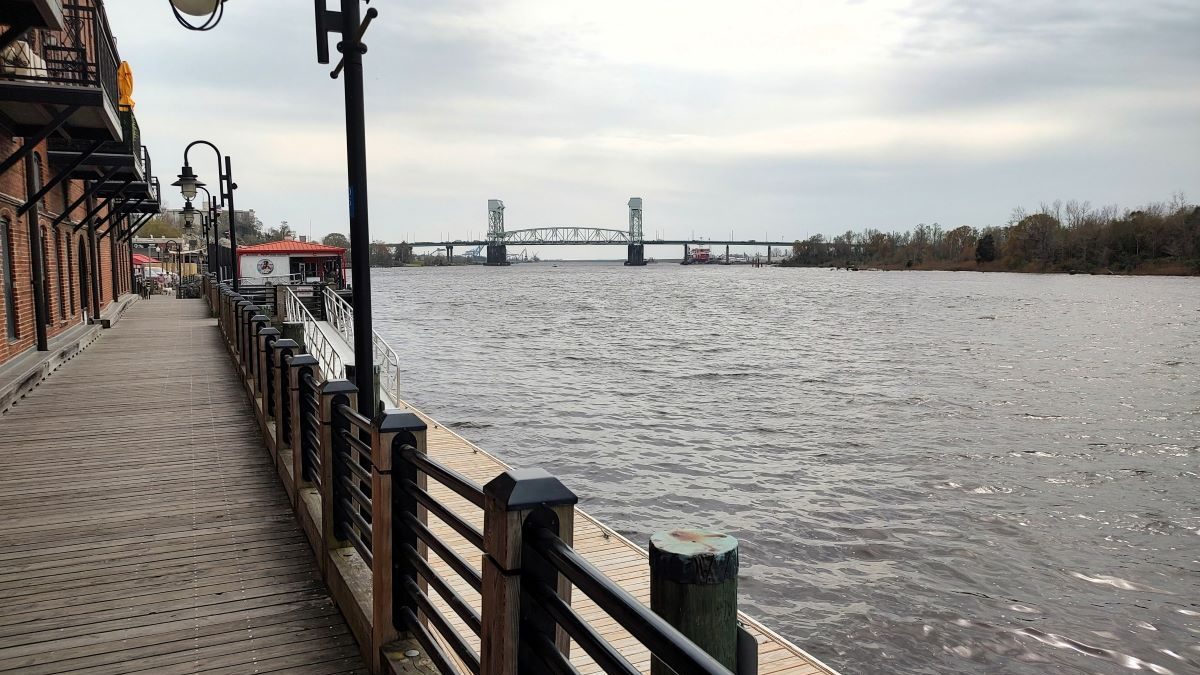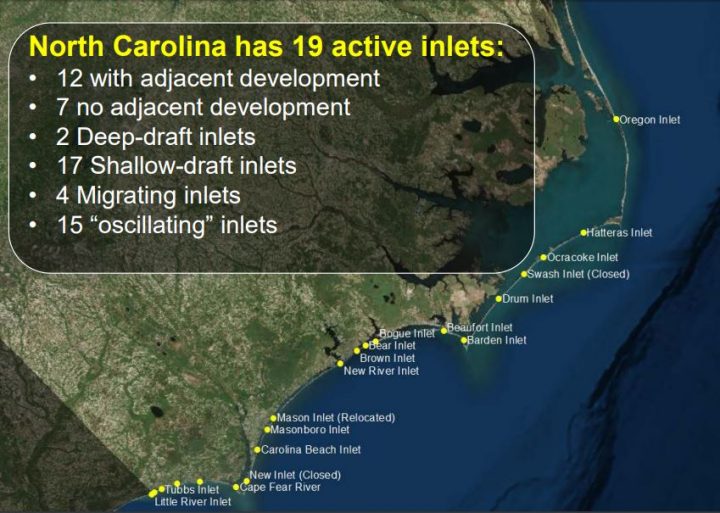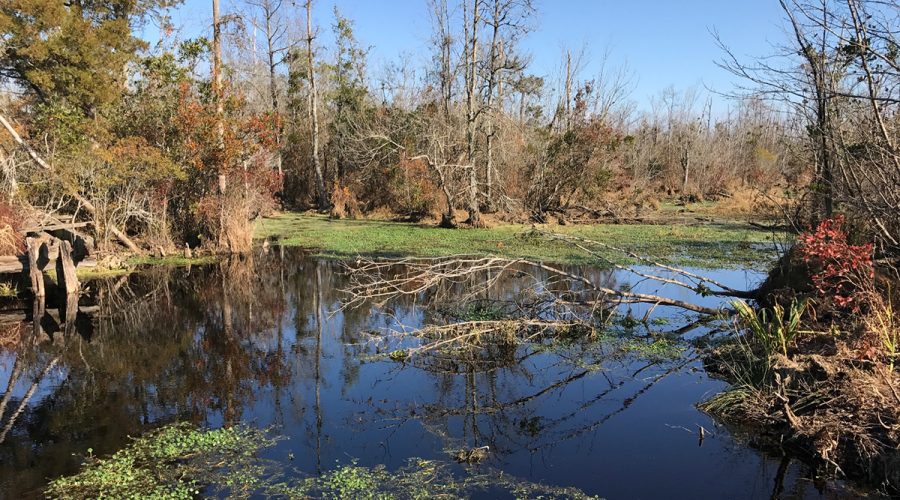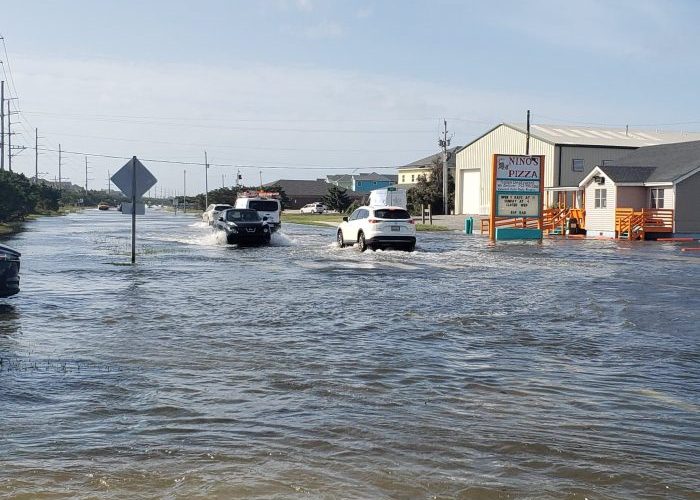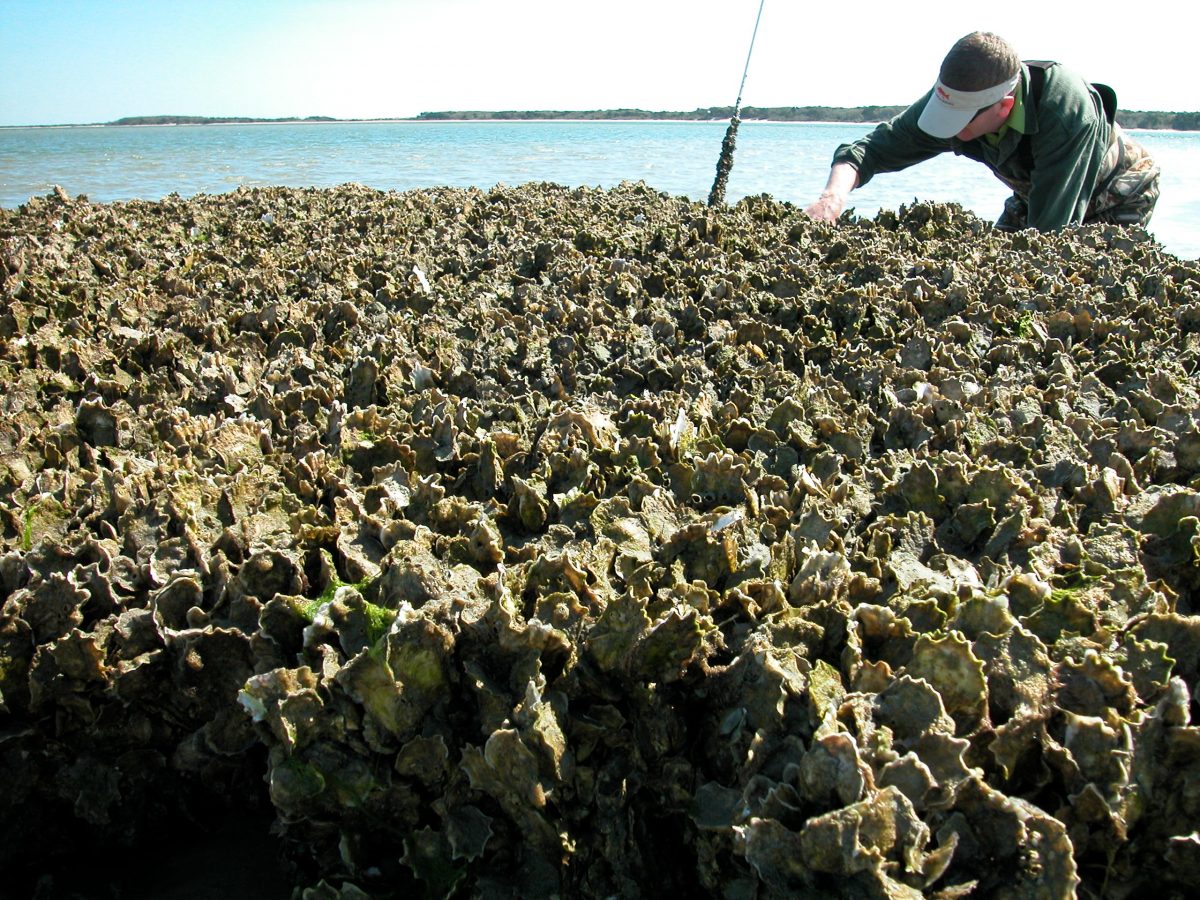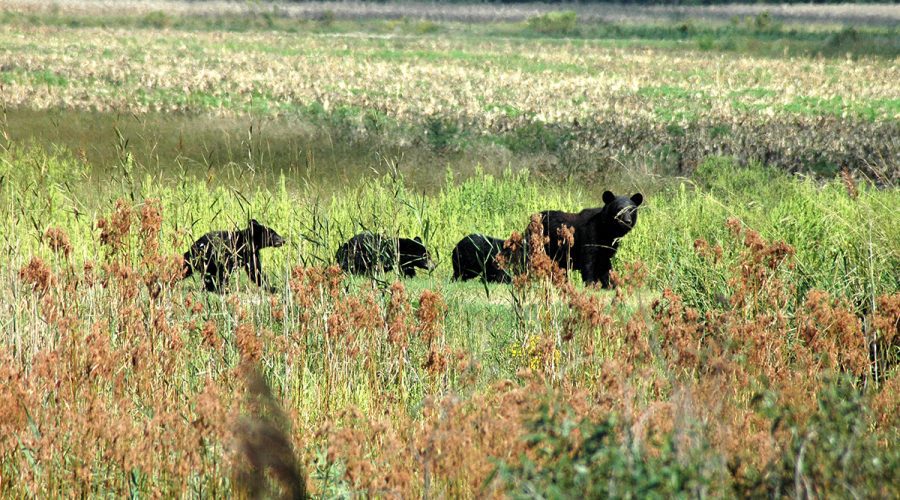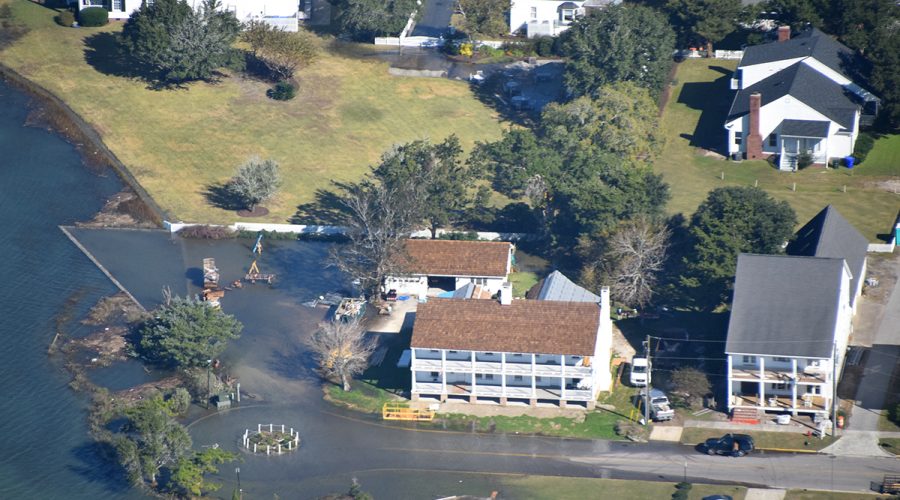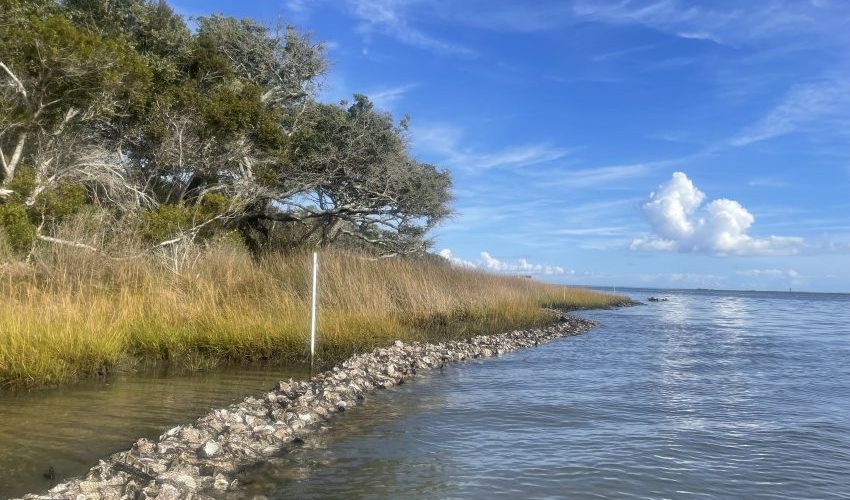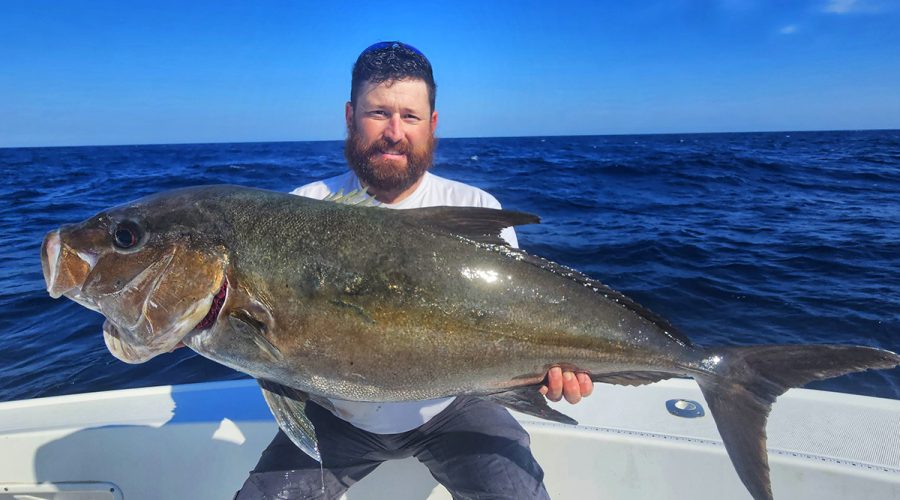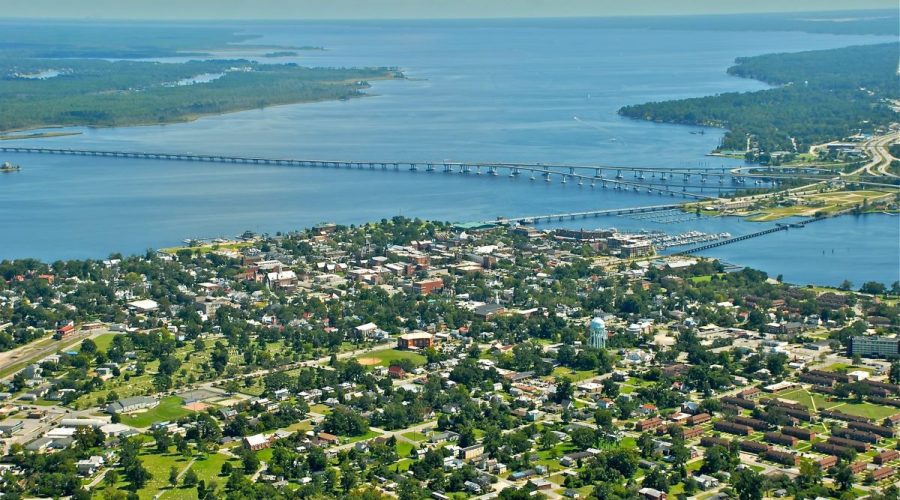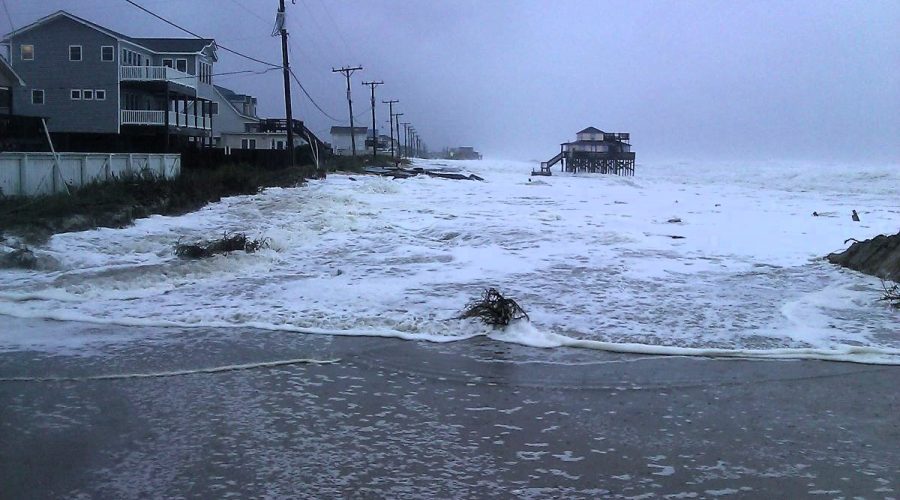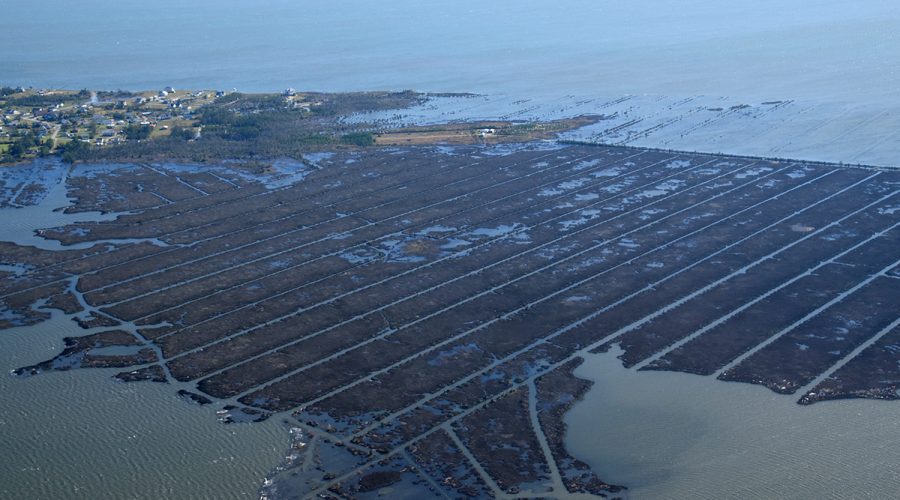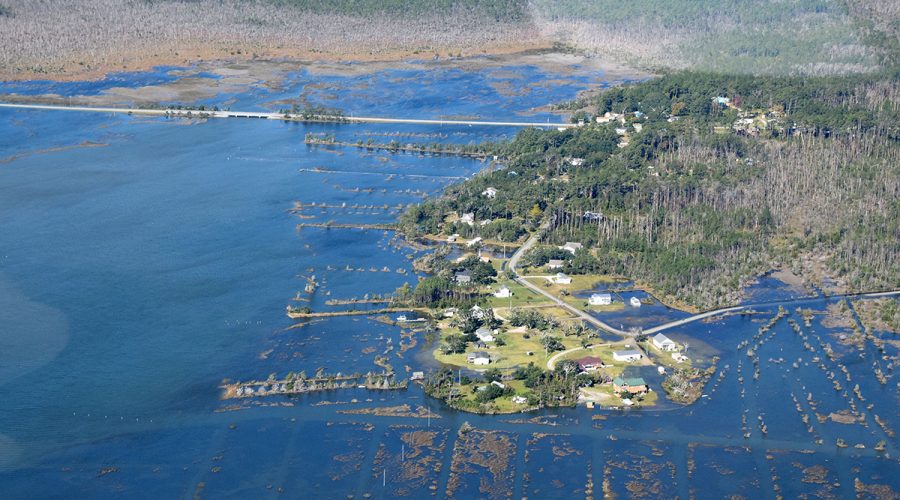As sea levels rise and flooding increases, land subsidence will make the problem even worse in some coastal cities, new research finds.
climate change
Science panel to continue inlet hazard, sea level rise reviews
The Coastal Resources Commission science panel’s virtual meeting March 15 will resume discussions of updates to inlet hazard boundaries and sea level rise data for a report to the commission in April.
Film on climate change adaption screening in April
There is no charge to attend the screening of the film, which focuses on how residents are facing challenges of climate change, but registration is required.
State’s climate plan adds carbon sequestration component
State environmental officials’ new, “different approach” to reducing greenhouse gas emissions puts the spotlight on the climate benefits natural and working lands conservation brings.
Dare receives $5M grant to elevate 31 flood-prone homes
The project to elevate homes in Kitty Hawk, Manteo, Wanchese, Stumpy Point, Manns Harbor, Avon, Buxton, Frisco and Hatteras is expected to begin this year.
Extensive study aims to help state better manage fisheries
Researchers from multiple universities are working under the North Carolina Collaboratory umbrella to develop recommendations to improve state management of species like oysters.
Where war looks lost, Mother Nature fights climate change
Alligator River National Wildlife Refuge and other, nearby refuges and state lands especially vulnerable to climate change are getting $27.5 million from the Inflation Reduction Act for nature-based solutions.
Talk on climate change next ‘Science on the Sound’
Dr. Rosana Ferreira will present “Navigating Climate Change: Science, Prediction and Extremes” Jan. 18, during the monthly, in-person lecture series at the Coastal Studies Institute on the ECU Outer Banks Campus in Wanchese.
Three-hundred-year-old Beaufort faces existential threat
Guest commentary: Duke University senior Holden Buchanan examines Beaufort’s duality as a coastal science hub and example of climate vulnerability.
Coastal NC projects selected for $7M in federal grants
Money for the five efforts here is part of $144 million for projects that enhance the resilience of coastal communities and improve habitat for fish and wildlife in 31 states and U.S. territories.
Ocracoke Light Station project groundbreaking Dec. 7
The 15-minute event, which caps off the year-long celebration of the Ocracoke Light Station’s 200th anniversary, will take place Dec. 7.
Division establishes new state record for almaco jack
Matt Frattasio of Massachusetts is the first North Carolina recordholder for Seriola rivoliana, otherwise known as almaco jack.
State awards $2.3M in Environmental Enhancement Grants
Just shy of $1 million funded through the N.C. Department of Justice’s Environmental Enhancement Grant program is going to projects with coastal benefits.
Pace of cyclone strengthening has doubled since 1971
A study from Rowan University in New Jersey has drawn a connection between the number of rapidly strengthening tropical Atlantic hurricanes in recent years and documented increases in ocean temperatures.
Community Conversation: Plans for ‘next Florence’ emerge
Special Report: Hurricane Florence five years ago forced new thinking about adaptation and resiliency, especially in North Carolina’s most vulnerable coastal areas.
Florence’s scars heal slowly as change becomes more visible
Special report: Five years after Hurricane Florence battered and drenched Down East Carteret County, much has changed, but solutions are elusive.

